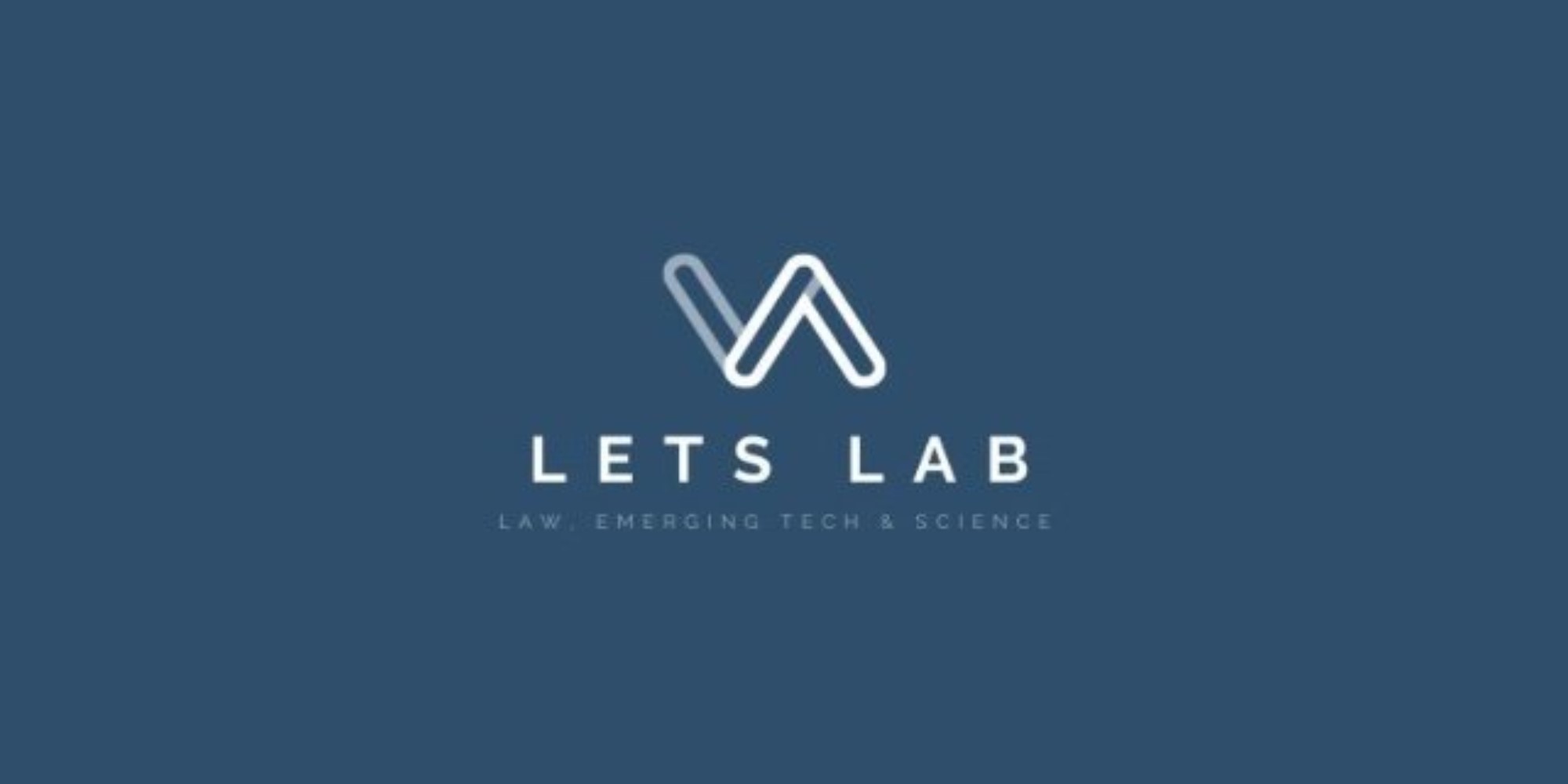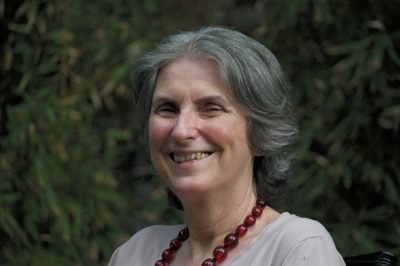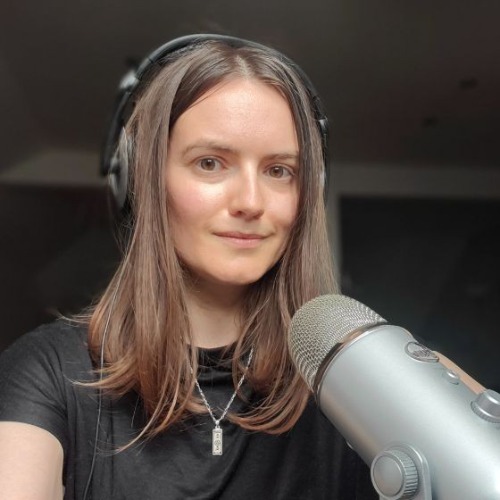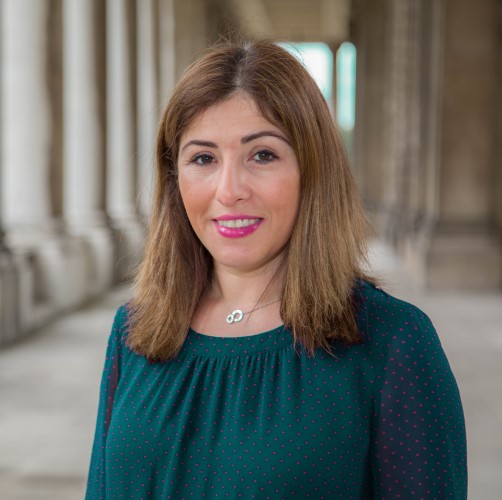
A warm welcome to the online Symposium “Digital Rights 2.0”, which marks a 10-year anniversary from the conference “Digital Rights” held in 2011 at the University of Leeds. The main objective of this symposium is to establish a venue for sharing and discussing with the research community the ways in which human rights have been shaped by emerging technologies in the past decade: a decade that exposed the conceptual fragilities of the rule of law in data-driven environments and has been characterised by a disillusionment with human rights narratives, beginning with the Snowden revelations in 2013, followed by the Cambridge Analytica scandal in 2015, leading up to the “fake news info-demic” in 2020. Such a revisionist approach does not only suggest an innovative means of interpreting social phenomena in a techno-legal setting, but it is much needed as a tool to evaluate past considerations and hypotheses and explore any lessons learned. In today’s fast-paced academic environment, we are rarely given the chance to explore current matters from such a wide angle: we aim to bring in a generalist perspective that transcends disciplinary boundaries and specialisms.
Attendance is free but registration is required – register here
We are grateful to the Peter Harris Trust Fund for sponsoring this event.
Speakers
Professor Roger Brownsword, King’s College London & Bournemouth University

Roger Brownsword holds professorial positions in Law at King’s College London (where he is Director of TELOS) and at Bournemouth University; he is an honorary Professor in Law at the University of Sheffield; and he is currently a visiting professor at City University Hong Kong. He co-edited Law and Human Genetics Regulating a Revolution (1998), Regulating Technologies (2008), and both the Cambridge Handbook on Human Dignity (2014) and the Oxford Handbook on Law, Regulation and Technology (2017); and his many sole-authored publications include Contract Law: Themes for the Twenty-First Century (OUP, 2006), Rights, Regulation and the Technological Revolution (OUP, 2008), Law, Technology and Society: Re-imagining the Regulatory Environment (Routledge, 2019) and Law 3.0: Rules, Regulation and Technology (Routledge, 2020). His latest book, Rethinking Law, Regulation and Technology is due for publication in 2022. He is the founding general editor (with Han Somsen) of Law, Innovation and Technology as well as being on the editorial board of a number of international journals; and, in addition to serving as a specialist adviser to parliamentary committees, he has been a member of various working parties, most recently the Royal Society Working Party on Machine Learning.
Professor Andrew Murray, London School of Economics

Andrew Murray is Deputy Head of Department and Professor of Information Technology Law at the London School of Economics. He directs the LSE’s Law, Technology and Society research group and is on the steering group of the LSE Data Science Institute. He is a Fellow of the Royal Society of Arts (FRSA), was a member of the Law Society LawTech Regulatory Action Taskforce and was in 2017-18 a Commissioner for the LSE Truth, Trust and Technology (T3) Commission. During 2018-19 Andrew was the Special Advisor to the House of Lords Communications Committee inquiry into internet regulation: Regulating the Digital Environment. He has been since 2014 a visiting Professor at the Computer Law Institute, VU Amsterdam, and was in Spring 2015 and 2017 a visiting Professor at the Paris Institute of Political Science (Sciences Po). In 2020 gave the prestigious TMC Asser Lecture lecturing on AI, autonomy and the rule of law.
He writes the leading textbook Information Technology Law: The Law and Society, and recently co-wrote Rethinking the Jurisprudence of Cyberspace with Chris Reed.
Professor Mireille Hildebrandt, Radboud University Nijmegen & Vrije Universiteit Brussels

Prof Hildebrandt is co-Director of the Research Group on Law Science Technology and Society studies (LSTS) at the Faculty of Law and Criminology and Principal Investigator of the ERC Advanced Grant project on ‘Counting as a Human Being in the era of Computational Law’ (2019-2024), see www.cohubicol.com. In that context she is co-founder of the international peer reviewed Journal of Cross-Disciplinary Research in Computational Law, see www.journalcrcl.org. Her research interests concern the implications of automated decisions, machine learning and mindless artificial agency for law and the rule of law in constitutional democracies. She has published 5 scientific monographs, 23 edited volumes or special issues, and over 100 chapters and articles in scientific journals and volumes. Personal websites at Berkeley Press and SSRN. See also her Google Scholar profile.
Professor Ian Cram, University of Leeds

Ian Cram is Professor of Comparative Constitutional Law, School of Law, Leeds University. His research interests include freedom of expression and constitutional reform. His previous publications include Terror and the War on Dissent and Citizen Journalists: Newer Media, Republican Moments and the Constitution.
Dr Paul Bernal, University of East Anglia

Paul Bernal is Associate Professor in Information Technology, Intellectual Property and Media Law in the UEA School of Law. His background is unusual for a legal academic. His first degree was in mathematics, at Cambridge University whilst his PhD at the LSE concerned the interaction between human rights and internet privacy and in particular, the commercial gathering and use of personal data - particularly by organisations like Google and Facebook - and how that use affects our lives, and will increasingly affect our lives in the future. This has become his speciality - he has published three books (two monographs with Cambridge University Press, and a short, accessible book with Sage) as well as many articles on all aspect of the subject.
Dr Angela Daly, University of Strathclyde

Dr Angela Daly is a socio-legal scholar of the regulation and governance of new (digital) technologies. She is currently Reader in Law & Technology in Strathclyde Law School and Associate Dean of Knowledge Exchange in the Faculty of Humanities and Social Sciences, University of Strathclyde (Scotland). She is the author of Private Power, Online Information Flows and EU Law: Mind the Gap (Hart 2016) and Socio-Legal Aspects of the 3D Printing Revolution (Palgrave 2016) and co-editor of the free open access collection Good Data (INC 2019).
Dr Jasper Sluijs, Utrecht University

Dr. Jasper P. Sluijs is assistant professor at Utrecht University School of Law, where he teaches competition law and regulation. His research focuses on state-owned enterprises and competition law enforcement. He received his PhD cum Laude from Tilburg Law & Economics Center, and was a Fulbright Fellow at the Georgia Institute of Technology and the University of Pennsylvania.
Dr Emily Laidlaw, University of Calgary

Emily Laidlaw is a Canada Research Chair in Cybersecurity Law and Associate Professor at the University of Calgary, Faculty of Law. She researches in the area of information and technology regulation and human rights, with a focus on content regulation, privacy and freedom of expression. Her current project on privacy and online abuse is funded by a Social Sciences and Humanities Research Council Insight Grant. She is author of the book Regulating Speech in Cyberspace: Gatekeepers, Human Rights and Corporate Responsibility (Cambridge University Press, 2015). As a scholar she actively contributes to law reform and other advisory work, with recent projects for the Federal Government, Law Commission of Ontario, the Uniform Law Conference of Canada and the Organization of Economic Co-operation and Development. Emily is a member of the Institute for Security, Privacy and Information Assurance and a fellow of the Centre for Military, Security and Strategic Studies.
Dr Shara Monteleone, Italian Data Protection Authority (Garante per la protezione dei dati personali)

Shara Monteleone is currently working as a legal officer at the Italian Data Protection Authority (Garante per la protezione dei dati personali), which she joined in 2019. Previously, she worked as a policy analyst for the European Parliamentary Research Center (Brussels), as Assistant Professor at the University of Groningen (NL), as a researcher at INRIA (France) and as a policy analyst at the JRC of the European Commission (IPTS, Seville), focusing on policies and legislation in the field of privacy and data protection. She holds a PhD in Law and Technology, an LLM on Media and data protection law from the University of Florence (Italy) and an LLM from the European University Institute. She is an Italian qualified lawyer.
Dr Dariusz Kloza, Vrije Universiteit Brussel

Dariusz (Darek) Kloza is a researcher at the Research Group on Law, Science, Technology and Society (LSTS) at the Vrije Universiteit Brussel (VUB), where he is a founding member of the Brussels Laboratory for Data Protection & Privacy Impact Assessments (d.pia.lab). He also freelances at the Centre for Direct Democracy Studies (CDDS) at the University of Bialystok (Poland), where he is co-editor of the ‘European Integration and Democracy’ Series (Intersentia). His expertise concentrates on the governance of privacy and personal data, in particular on the tools for their protection.
Dr Nicholas J. Gervassis, University of Plymouth

Nicholas is a Lecturer in Law at the University of Plymouth, School of Law, Criminology and Government. His main area of interest and legal expertise involves the broader meeting of regulation and information technologies.
Organising Committee

Dr Argyro Karanasiou is the Director of LETS Lab at the School of Law & Criminology and a leading expert in Information Technology Law. Her work has been at the forefront of nurturing ‘law and emerging technologies’ as a sub-field of legal and interdisciplinary scholarship and has earned her visiting research affiliations with Yale Law School (ISP Alumna), NYU Law (ILI Alumna 2016), Harvard Law (affiliate Faculty staff 2014), Complutense Madrid (ITC). She is actively involved in several technology policy and related initiatives in the UK and worldwide, including those concerned with the governance of AI, one of her key research interests.

Dr Aysem Diker Vanberg is a Senior Lecturer in Law at the University of Greenwich. She holds an LLB (University of Ankara), an LLM (University of Bremen) and a PhD in Competition Law (University of Essex) and has taught at the Universities of Essex and Anglia Ruskin. She has also worked as a lead in-house counsel for multinational companies including MAN Nutzfahzeuge AG and Cimpor Cimentos de Portugal. Dr Diker Vanberg has expertise on EU competition laws regulating digital platforms and her main research interests lie in data protection law, EU and UK competition law for online platforms as well as the interplay between data protection law and competition law.
Papers/Abstracts
In Our Digital Times: Rethinking the Rule of Law, Rethinking Respect for the Law
Professor Roger Brownsword, King’s College London & Bournemouth University
The development of digital technologies has brought with it challenges to both the Rule of Law and to respect for (Westphalian) Law. Although there has been some revision of positions taken in traditional debates and limited adjustment for new technologies, the exchanges largely assume that the legal enterprise is (i) a human enterprise and (ii) that rules, principles and standards are its instruments of choice.
In our digital times, with the option of governance by technologies, these ideas need a more radical rethink. This paper introduces two elements of that rethink.
First, the Rule of Law has to be rethought so that it covers governance not only by rules but also by technologies. This rethink operates along five prongs so that the Rule of Law: (i) applies online as much as offline; (ii) applies to private regulators as much as public regulators; (iii) applies to both rules and technical measures (as well as technological management); (iv) embeds ideals of procedural integrity and processual inclusivity; and (v) connects substantively to the ‘triple licence’ conditions (global, community and social) for legitimate acts of governance.
Secondly, respect for the law also has to be rethought so that the focus is not so much on whether smart machines can ‘do governance’ better than humans, but on what we value about the human dimension of the legal enterprise. Is it that we value governance that prioritises human welfare or is it that we value self-governance (imperfect though it might be)? If it is self-governance by humans that we value and respect, is respect for the law meaningful once governance is by machines?
Still Searching for Vonnegut's Narrator: Freedom, Identity and Autonomy in The Modern Digital Society
Professor Andrew Murray, London School of Economics
In 2011 I gave one of the keynotes at the original Digital Rights conference held at the University of Leeds. I gave a rather abstract speech based on Kurt Vonnegut’s classic text “Breakfast of Champions”. The book asks deep questions on the nature of human autonomy and free will. Then I argues a need for a “Bill of Digital Rights” to protect autonomous choice and action. Now ten years on I revisit Midland City, Ohio and ask whether in 2021 we are more like Dwayne Hoover or Kilgore Trout and what might be done to protect autonomy and thereby the rule of law.
Computational human rights: oxymoron or potential?
Professor Mireille Hildebrandt, Radboud University Nijmegen & Vrije Universiteit Brussels
Digital rights are often seen as ‘traditional human rights’ in a digital environment. By now we are facing entirely different challenges where law itself is turned into computer code, whether by way of ‘rules as code’, an ‘internet of rules’ or by way of data-driven predictions for legal search. This has reignited my arguments for ‘legal protection by design’ as opposed to ‘legal by design’, suggesting that for human rights to be ‘real’ in computation-driven environments they will have to offer protection at the level of the computational architecture though informed by written law. Computational law is sprouting on the side of commercial providers (notably publishers in the legal domain), legal practice (law firms, judiciary) and on the side of the legislature, raising a plethora of questions and challenges. In this brief talk I will discuss why and how ‘legal protection by design’ differs from ‘legal by design’ and what this could mean for ‘effective and practical’ protection of human rights.
New Battles, Old Wars: ten years of internet privacy fights
Dr Paul Bernal, University of East Anglia
In this talk, Paul Bernal will look at what has changed and what has stayed the same in the field of internet privacy over the last ten years. What are the ‘new’ areas of conflict – from contact tracing and health data to the internet of things and AI – and which conflicts have remained the same, or come back again and again to haunt us, from ‘real names’ to encryption. Where have things got worse, where have things got better – and what are the old wars that still have to be fought? We still have overwhelming internet giants, manipulative politicians trying to control something they don’t understand, regulators struggling to get to grips with the key issues of the day – and being pushed this way and that by the internet giants and manipulative politicians. Has very much really changed – and is this something we will always have to fight?
Freedom of expression and corporate control online: 10 years on
Dr Angela Daly, University of Strathclyde
In this talk I revisit some themes of my presentation at the 2011 conference, which became a journal article: https://ejlt.org/index.php/ejlt/article/view/166/258.
Specifically I will discuss the trajectory of free expression, digital labour and corporate control online, and points to some of the developments in this area since the AOL-Huffington Post merger which was at the centre of my previous analysis. The increasing power of online platforms as digital gatekeepers, the monetisation of disinformation, the introduction of press publishers’ rights, and moral panics over ‘cancel culture’ have been huge shifts in the digital landscape in the last 10 years, inspiring new legislation and approaches which were almost unthinkable as practical steps taken by users, platforms and governments a decade ago.
The Challenges Designing Intermediary Liability Laws
Dr Emily Laidlaw, University of Calgary
The ideal framework for intermediary liability has vexed policymakers since the internet’s commercialization. The quest has taken on a frenzied pace in recent years with intense scrutiny of who they are, what they do and what they should be responsible for. Over the years a theme has emerged from my discussions about intermediaries, and its subset platforms, and it prompts me to explore it in this talk. My question is simple, although it raises complex questions that go to the core of debates about regulation of the digital economy: why is it so difficult for law and policymakers to agree on a regulatory framework?
The right not to access the Internet
Dr Dariusz Kloza, Vrije Universiteit Brussel
Ten years ago, Paul De Hert and I took part in – back then – a vivid debate whether access to the Internet should be made a fundamental right. In our article (2012), from a liberal viewpoint, we argued in favour of such a new right as we saw it could contribute to appropriately addressing some political and social concerns, such as censorship or digital divide, despite some drawbacks such as increased criminality. We saw such a standalone right necessary as the existing international fundamental rights law, despite its richness and plasticity (for example, positive obligations or human rights as ‘living instruments’), was insufficient to appropriately protect individuals and their interests in that context. In other words, back then, we positioned that giving an option to access the Internet was an inherently good thing, meriting protection at the highest legal level.
Ten years later, however, as society develops, access to the Internet – and, more broadly, the use of new and emerging technologies – have frequently ceased to be merely an option, a (fundamental) right. Rather, it has become more and more a (de facto) obligation. These days, for example, cash payments are often discouraged (recently, also in the name of public health) or life without a mobile phone has become unduly burdensome. Such developments beg many questions and some of them include whether people could be legally obliged to use a given technology, and whether such an obligation conforms to the principles of democracy, the rule of law (Rechtsstaat) and human rights.
Hence, in this exploratory contribution, I will look at whether, how and to what extent international human rights law protects individuals against an obligation to use new and emerging technologies. As specific rights of that genre, at various levels, are not new (for example, the so-called right to be forgotten, known from personal data protection law), perhaps, to counterbalance, there should also be a (fundamental) right not to access the Internet.
‘What have the Romans ever done for us?’ A brief comment on geopolitics and developing digital regulatory challenges
Dr Nicholas Gervassis, University of Plymouth
Contrary to the early 21st century globalisation narrative, the last decade has seen strong separatist tendencies rising within the West’s great international projects of political cooperation and regulatory harmonisation. Yet, despite the notable interstate tensions and divides, a shared growing concern about Big Tech power concentrations is now seemingly becoming the unexpected unifying focal point. In a sense, the GDPR marked the beginning of a series of legislative initiatives that have been gaining in popularity among different states, by promising to bring the practices of tech giants into line with fundamental rule of law standards. This short talk will frame a comment on these developments and what they might imply for the future.
Data protection rights in a data-driven age
Dr Shara Monteleone, Italian Data Protection Authority (Garante per la protezione dei dati personali)
Looking back at the paper presented in Leeds (Privacy and Data Protection at the time of Facial Recognition: towards a new right to Digital Identity? | European Journal of Law and Technology (ejlt.org)), I would like to discuss some of the evolutions of data protection right in the last decade, main challenges and lessons learned, going briefly through some of my work experiences and papers. Besides the changes and developments, there is also a file rouge that runs across this decade: data protection is adynamic right, as it evolves together with the technologies but cannot survive in an environment of disrespect for the law (and likewise in an environment with a law that does not evolve) and it is a right with a transversal application (since personal data are processed in most of our daily activities) that creates a sort of ‘magnetic field’, increasingly attracting other interests and rights, with which it needs to continuously interact and dialogue.
Programme
09:15-09:50 | Welcome and Opening Address
Dr Argyro Karanasiou and Dr Aysem Diker Vanberg, University of Greenwich Tim Barnes, QC |
10:00-10:20 | Keynote 1
In Our Digital Times: Rethinking the Rule of Law, Rethinking Respect for the Law Professor Roger Brownsword, King’s College London & Bournemouth University |
10:20-10:30 | Break |
10:30-11:45 | Panel 1 Chair: Dr Arygro Karanasiou, University of Greenwich Computational Rights: Oxymoron or Potential? Professor Mireille Hildebrandt, Radboud University Nijmegen & Vrije Universiteit Brussels Narrowing political pluralism? - Council of Europe responses to democratised political expression on digital media Professor Ian Cram, University of Leeds New Battles, Old Wars: ten years of internet privacy fights Dr Paul Bernal, University of East Anglia |
12:00-13:00 | Lunch Break |
13:00-14:15 | Panel 2 Chair: Dr Aysem Diker Vanberg, University of Greenwich Freedom of expression and corporate control online: 10 years on Dr Angela Daly, University of Strathclyde What have the Romans ever done for us?’ A brief comment on geopolitics and developing digital regulatory challenges Dr Nicholas Gervassis, University of Plymouth Data protection rights in a data-driven age Dr Shara Monteleone, Italian Data Protection Authority (Garante per la protezione dei dati personali) |
14:30-15:00 | Break |
15:00-15:20 | Keynote 2
Still Searching for Vonnegut's Narrator: Freedom, Identity and Autonomy in The Modern Digital Society Professor Andrew Murray, London School of Economics |
15:20-15:30 | Break |
15:30-16:45 | Panel 3 Chair: Fatimazahra Dehbi, University of Greenwich The Challenges Designing Intermediary Liability Laws Dr Emily Laidlaw, University of Calgary The right not to access the Internet Dr Dariusz Kloza, Vrije Universiteit Brussel |
16:45-17:00 | Break |
17:00-18:00 | Closing Remarks and Social Event |
Facilitated by: Dilara Altun, LETS Lab, BHRE, University of Greenwich Fatimazahra Dehbi, LETS Lab, BHRE, University of Greenwich Eva Souchet, LETS Lab, BHRE, University of Greenwich |